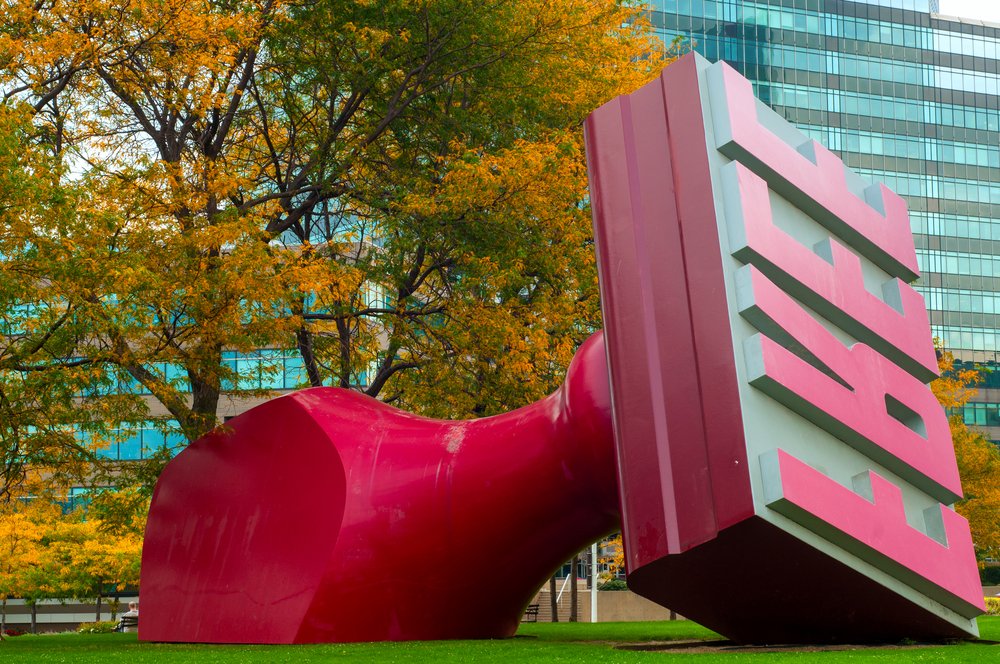By Harlan Spector
Cleveland was once a hotbed of socialism. Early in the 20th century, immigrant laborers and other radicals took to the streets by the thousands. Clevelander C.E. Ruthenberg was a leading figure in leftist politics and reputedly “the most arrested man in America,” according to a 1996 Plain Dealer story. Ruthenberg helped to organize garment workers and teachers. He ran unsuccessfully for the Senate, the Ohio governorship, and the office of mayor in Cleveland, and later became a founding father of the Communist Party of America.
A century later, you would hardly know communists ever had an organized presence in Northeast Ohio. But that presence never completely went away, in fact. They were in town the first weekend of May for a convention of the Ohio district of the Communist Party USA. The gathering attracted little notice, likely because only about 30 people took part at the Euclid Avenue union hall of Laborers International Local 310.
[blocktext align=”right”]So, what does a communist convention look like?[/blocktext]It’s fair to say communists are stereotyped, misunderstood, and maligned, by their fellows on the left and most certainly by the right. But this crowd looked nothing like an Occupy Wall Street photo lineup. There were no signs, no raised voices. The closest approximation of fist pounding happened when economic researcher George Zeller blasted “academics and elites” for perpetuating a myth of economic recovery, when hundreds of thousands of Ohio jobs have vanished:
“These people are not just liars, they are damn liars who should rot in hell!”
So, what does a communist convention look like? The assembled were union people and gray-haired progressives. The convention included a bus driver, an ironworker, a farmer, a retired teacher and a lawyer. Their issues were pretty much your issues, if you are anywhere left of center: Voter rights, worker rights, and reproductive rights. Green energy and immigration reform. Electing Ed FitzGerald and Nina Turner.
Not that communists love Democrats. But there was a decisive fall-in-line-with-the-mainstream vibe going on. It seems the Tea Party revolution has managed to galvanize left-of-center activists. At least that was the sense in the basement union hall. Communists and socialists can no longer afford to dismiss the Democratic Party as a slightly-less-evil twin of the Republican Party.
“There are forces on the left that want to make Democrats the problem, and they’re not the problem,” organizer Rick Nagin told people seated at folding tables as they nibbled on breakfast muffins. “We need to keep our focus on defeating right-wing extremism.”
Nagin, 72, is a tireless political activist and perhaps Cleveland’s best-known communist. He once worked for Congressman Dennis Kucinich, and ran unsuccessfully for Cleveland City Council in 1995. The candidate who won that race, Nelson Cintron Jr., hired Nagin as his top aide.
Politically well-connected, Nagin brought to the convention some well-known figures, including State Representative Mike Foley, local AFL-CIO leader Harriet Applegate, and the respected and often-quoted Zeller. Foley is serving his last term as a progressive Democrat in Columbus—an endangered species if there ever was one. Outflanked by right-wing Republicans, he has been helpless to stop legislative assaults on voting and abortion rights.
“Over the last three and a half years under Governor Kasich, I’ve called it the disaster of the week, or the atrocity of the week,” Foley told the audience. “One, two or three and four bills in a given week that are just awful.”
He mentioned the legislation known as Senate Bill 310, which would halt clean-energy and energy-efficiency standards. FirstEnergy and other utilities are pushing it.
“It’s incomprehensible, it’s immoral what the Republicans are trying to do to get rid of these standards,” Foley said.
Foley is a term-limited lame duck after this year; it is a rare officeholder willing to speak at a Communist Party event. There are like-minded people in local politics, but most keep their distance. Associating with communists is not something they want to be tagged with by political rivals.
Progressive legislators have spoken at Communist Party events in other cities, Nagin said. But he is well aware of the stigma. A staffer for an officeholder up for re-election had volunteered to speak at the Cleveland event, but Nagin warned against it.
“We told him the GOP would certainly seize on it and it was not worth the risk,” Nagin said in an e-mail response to the stigma question. “I think our general concept of building a broad democratic coalition (including the Dems) to defeat right-wing extremism is welcomed by many officeholders, although they may not be ready to openly advocate socialism or be publicly associated with us.”
[blocktext align=”left”]It is a rare officeholder willing to speak at a Communist Party event.[/blocktext]Michael Kilbane, the president of Fairview Park City Council, is one politician who did show up. Kilbane said he’s a lifelong tradesman, an ironworker. He said he’s not a member of the party, but stands with the communists because they stand for workers’ rights.
A few years ago, Kilbane pushed through a resolution through his council opposing Senate Bill 5, which sought to limit collective bargaining rights of public employees. More recently, he fought for pro-labor legislation regarding requirements for city contractors.
“I was met with a wave of manufactured opposition. The mayor vetoed the legislation,” he said in an interview. “I’m a voice of the working people. This (convention) is about protecting democracy. That’s it in a nutshell.”
On the subject of county executive Ed FitzGerald, Applegate, who heads the North Shore AFL-CIO Federation of Labor, told the gathering the left is warming up to him. FitzGerald has embraced the progressive agenda in his gubernatorial run against Republican incumbent John Kasich. It hasn’t been easy mobilizing union members behind FitzGerald, she said. Though organized labor has donated generously to the Democrat’s campaign, his job-cutting county reform agenda and his management style alienated many party stalwart. In general, union folks don’t see mainstream Democrats doing much for them.
Applegate said FitzGerald did galvanize the base last month when he beat back state Republicans who tried to block him from mailing out absentee ballots.
She asked the communists to not just defend FitzGerald, but to “start saying he’s our man.”
“He brings a lot to this race. He’s got courage, he’s smart, he’s pretty damn liberal.”
Harlan Spector covered medicine, higher education, county government and much more in 23 years at the Plain Dealer. He also served as chair of the paper’s chapter of the Newspaper Guild before taking a voluntary buyout in 2013.
Free Stamp image by Kenneth Sponsler, via Shutterstock.com







A few thoughts. Any “left” agenda here? Any ideas other than to complain about what the Tea Party crackpots are up to? The TPs DO have any agenda that they vigorously promote and gets traction in Ohio. The Dems are only “left” because the GOP center is so far to the right and the Dems are not about really changing our political-economic system, let alone creating a different and better one.
We need more social awareness and activism in Ohio. Under Kasich, this state is rapidly becoming a third world country.